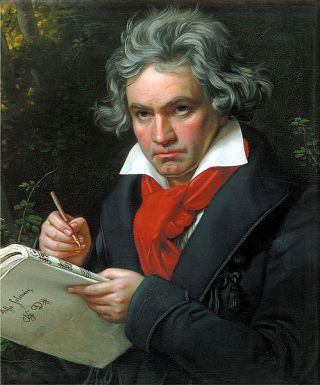Bias
Why Do We Save the Best for Last?
Why is the best last in so many aspects of our lives?
Posted October 24, 2012

Did Beethoven have an intuitive grasp of human psychology? Yes.
Sometimes you start thinking about a problem in psychology and then you notice a pattern in the world and realize there’s a lot of mystery left out there. And sometimes there's one thread linking it all.
Why does a gymnast put her most impressive skill at the end of the routine? Why do fireworks designers put the big burst at the end? What is the fourth movement of the symphony the most powerful one? Why do stand-up comics like to end with their strongest material? Why does the climax come at the end of the movie instead of the beginning? Why do we eat dessert last? Why do sports movies and documentaries fetishize games that are decided in the final seconds?
I actually have no idea, but I have been thinking of a phenomenon in psychology that relates to this. It’s called the “peak-end bias.”
The question is: When we look at some past event, how do we evaluate it? To make it concrete, think of a trip to Disney World you took one year ago. Did you enjoy it or dislike it? How much? Would do you it again? Or would you repeat the trip to Niagara Falls you took two years ago?
We as psychologists know almost nothing about how you answer this question. The simplest process imaginable would be that you take an average of your happiness level across the entire duration of the trip. But this is not what you or I or anyone does.
Instead, we think of a few key moments in the trip, and take the average happiness those generated. The “peak” is the moment of greatest intensity. The “end” is the last thing we did on the trip. We make take a few other salient ones (meaning ones that stand out in our memories). But that’s it. That's how we evaluate the whole event. That determines whether we would do it again.
This “peak-end” bias was part of a comprehensive lifelong study of irrational biases explored by Nobel Prize winner Daniel Kahneman. But it has not attained the same level of fame as loss aversion, prospect theory, or the two systems. Still, I think it’s time for its due. Or at least a critical test. What other phenomenon could explain the timing of pecan pie, the Statue of Liberty in Planet of the Apes, and the Chorale in Beethoven’s ninth symphony?


